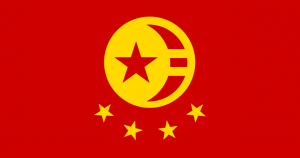Difference between revisions of "Language/Yue-chinese/Grammar/Future-Tense"
m (Quick edit) |
m (Quick edit) |
||
| Line 65: | Line 65: | ||
|description=In this lesson, we will learn how to use the future tense in Yue Chinese. We will look at the different ways to express the future in Yue Chinese and how to use them correctly. | |description=In this lesson, we will learn how to use the future tense in Yue Chinese. We will look at the different ways to express the future in Yue Chinese and how to use them correctly. | ||
}} | }} | ||
==Related Lessons== | |||
* [[Language/Yue-chinese/Grammar/Pronouns|Pronouns]] | |||
* [[Language/Yue-chinese/Grammar/Negation|Negation]] | |||
* [[Language/Yue-chinese/Grammar/Conditional-Mood|Conditional Mood]] | |||
* [[Language/Yue-chinese/Grammar/Plurals|Plurals]] | |||
* [[Language/Yue-chinese/Grammar/Questions|Questions]] | |||
* [[Language/Yue-chinese/Grammar/Adjectives|Adjectives]] | |||
* [[Language/Yue-chinese/Grammar/Nouns|Nouns]] | |||
{{Yue-chinese-Page-Bottom}} | {{Yue-chinese-Page-Bottom}} | ||
Revision as of 21:38, 25 February 2023
Hi Yue Chinese learners! 😊
In this lesson, we will learn how to use the future tense in Yue Chinese. We will look at the different ways to express the future in Yue Chinese and how to use them correctly.
The future tense in Yue Chinese is used to talk about events that will happen in the future. It can be used to talk about plans, predictions, and intentions. There are several ways to express the future in Yue Chinese.
Expressing the Future with "Hou"
The most common way to express the future in Yue Chinese is with the particle "hou". This particle is placed after the verb to indicate that the action will take place in the future. For example:
| Yue Chinese | Pronunciation | English Translation |
|---|---|---|
| 我會去 | wo5 wui2 heoi3 | I will go |
| 你會唔會去 | nei5 wui2 m4 wui2 heoi3 | Will you go? |
| 佢會去 | keoi5 wui2 heoi3 | He/She will go |
It is important to note that the particle "hou" cannot be used with verbs that already have a future meaning. For example, the verb "會" (wui2) means "will" and cannot be used with the particle "hou".
Expressing the Future with "Ji"
Another way to express the future in Yue Chinese is with the particle "ji". This particle is placed after the verb to indicate that the action will take place in the near future. For example:
| Yue Chinese | Pronunciation | English Translation |
|---|---|---|
| 我會去 | wo5 wui2 heoi3 | I will go |
| 你會唔會去 | nei5 wui2 m4 wui2 heoi3 | Will you go? |
| 佢會去 | keoi5 wui2 heoi3 | He/She will go |
It is important to note that the particle "ji" cannot be used with verbs that already have a future meaning. For example, the verb "會" (wui2) means "will" and cannot be used with the particle "ji".
Expressing the Future with "Yau"
The last way to express the future in Yue Chinese is with the particle "yau". This particle is placed after the verb to indicate that the action will take place in the distant future. For example:
| Yue Chinese | Pronunciation | English Translation |
|---|---|---|
| 我會去 | wo5 wui2 heoi3 | I will go |
| 你會唔會去 | nei5 wui2 m4 wui2 heoi3 | Will you go? |
| 佢會去 | keoi5 wui2 heoi3 | He/She will go |
It is important to note that the particle "yau" cannot be used with verbs that already have a future meaning. For example, the verb "會" (wui2) means "will" and cannot be used with the particle "yau".
Practice
Now that you know how to express the future in Yue Chinese, it's time to practice! To improve your Yue Chinese Grammar, you can also use the Polyglot Club website. Find native speakers and ask them any questions!
➡ If you have any questions, please ask them in the comments section below.
➡ Feel free to edit this wiki page if you think it can be improved. 😎
Related Lessons
